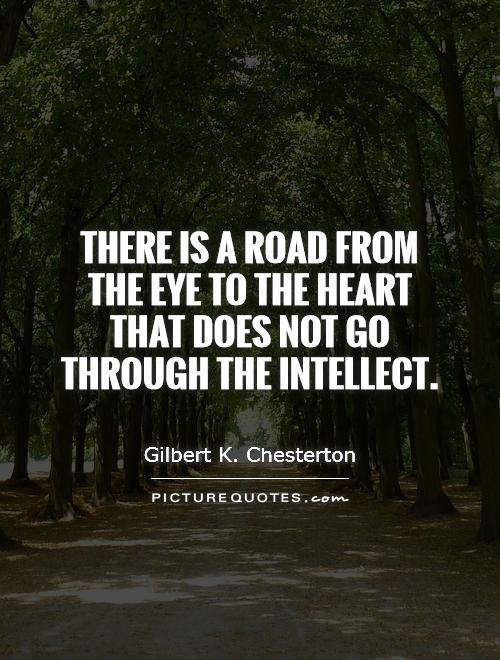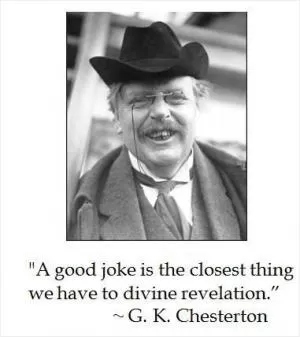There is a road from the eye to the heart that does not go through the intellect

There is a road from the eye to the heart that does not go through the intellect
Gilbert K. Chesterton, a renowned English writer, poet, and philosopher, once famously said, "There is a road from the eye to the heart that does not go through the intellect." This profound statement encapsulates Chesterton's belief in the power of intuition, emotion, and instinct in shaping our perceptions and understanding of the world around us.Chesterton was known for his wit, humor, and keen insights into human nature and society. He believed that the intellect, while important, was not the sole or even the primary means of apprehending truth and beauty. Instead, he argued that the heart, or the emotional and intuitive faculties, played a crucial role in our perception and appreciation of the world.
In Chesterton's view, the eye, as the window to the soul, serves as a conduit for our emotions and feelings. When we look at something, whether it be a work of art, a natural landscape, or a person, our emotions and instincts are immediately engaged. These visceral reactions bypass the rational mind and go straight to the heart, where they can have a profound impact on our thoughts and actions.
For Chesterton, the heart represents our deepest desires, passions, and values. It is the seat of our emotions, our moral compass, and our sense of beauty and wonder. By following the road from the eye to the heart, we can tap into these inner resources and connect with the world in a more authentic and meaningful way.
Chesterton's philosophy is reflected in his writings, which often explore the themes of faith, love, and human nature. He believed that true wisdom and insight come not from intellectual analysis alone, but from a holistic engagement with the world that encompasses both reason and emotion.












 Friendship Quotes
Friendship Quotes Love Quotes
Love Quotes Life Quotes
Life Quotes Funny Quotes
Funny Quotes Motivational Quotes
Motivational Quotes Inspirational Quotes
Inspirational Quotes